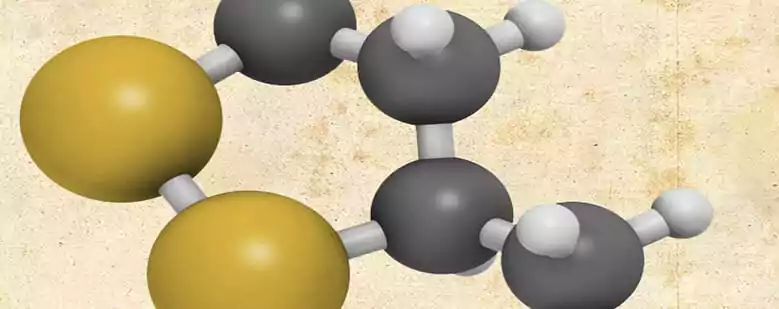
Complications
Diabetic Nephropathy (Kidney Disease)
Feb 21, 2017Diabetic nephropathy refers to diabetic kidney disease (nehpro=kidneys, pathy=disease). In 2011, diabetes caused nearly 44% of kidney failure cases. This makes diabetic kidney disease the Number One complication of diabetes; one that is likely to affect almost every diabetic to some extent. In nearly half the cases of kidney disease, it could lead to kidney failure as well.
Diabetes and Kidney Damage
The kidneys filter nearly 200 quarts of our blood every day. Diabetes is a disease of excess sugar in our blood. Read these two sentences together and the link between diabetes and kidneys becomes obvious!
Every single day of our lives, the kidneys perform these functions:
- Remove waste from our body (in the form of urine)
- Retain whatever proteins, vitamins and other nutrients we can still use
- Balance the fluids in the body
- Help maintain proper blood pressure by managing potassium and calcium levels
- Keep bones healthy
- Help make red blood cells.
Diabetes damages the kidneys and the urinary system in three main ways:
- Damage to blood vessels in the kidneys: Too much sugar damages the filters in the kidneys
- Damage to nerves: Fine nerves in the hands, feet, etc. are corroded by the extra sugar in the blood
- Damage to the urinary tract: Nerves run from our bladder to our brain and let us know when the bladder is full and we need to go. Damage to these nerves could mean we don’t react when our bladder is full. Result: extra pressure on the kidneys. Retained urine can also allow urinary tract infections to grow and migrate back to the kidneys.
Diabetes damage to blood vessels inside kidneys: The filtering units of the kidneys are called glomeruli (sing. – glomerulus). They have tiny blood vessels that are easily clogged and damaged by excess sugar in our blood. Damage to these vessels also causes albumin, a kind of protein to leak via the urine. Ideally, albumin should be retained in the body. It is a condition called microalbuminuria in the early stages and albuminuria in the later stages. This condition is generally called proteinuria where proteins are found in the urine.
Diabetes damage to nerves: Diabetes can also damage nerves everywhere in the body, a condition that is called diabetic neuropathy. When this happens in our hands and feet, we lose sensation there or begin to feel ‘pins and needles’. Nerves also convey messages from the brain to the urinary bladder and back. They inform the brain when our bladder is full. However, when these nerves are damaged by excess blood sugar, the brain does not realize when the bladder is full. The pressure from a full bladder can damage our kidneys over time.
Diabetes damage to urinary tract damage: When urine is retained in the bladder for long, the risk of bacterial infections increases. Bacteria also thrive on sugar, so diabetes increases infection risk. These infections usually stay limited to the urinary bladder. However, if they last for long, they may migrate to the kidneys and damage them too.
Consider all this in an organ that is working 24×7. Now you see why diabetic kidney failure is such a real danger for diabetics over the long term.
Diabetic Kidney Failure: Early Stages
Diabetic kidney failure is a very real threat. It is a slow but relentless process that is divided into five stages of deterioration. The last stage called Diabetic Kidney Failure or End Stage Renal Disease (ESRD)
The 5 stages of Diabetic Kidney Failure are:
- Stage 1: Kidney damage with normal GFR (90 or more). GFR or Glomeruler Filtration Rate is the most widely accepted measure of kidney function. It is a measure of how much blood passes through all the glomeruli per minute. It is measured in milliliters/minute/1.73 m2. There are often no symptoms at this stage.
- Stage 2: Kidney damage with mild decrease in GFR (60 to 89). Again, most patients feel no specific symptoms till this point.
- Stage 3: Moderate decrease in GFR (30 to 59). At this stage, you may be losing too much protein, calcium and other nutrients. Some patients may feel breathless (due to loss of iron and anemia). Some puffiness and water retention could also be visible in the body. Urine may turn brown in color. Some patients feel back pain too.
- Stage 4: Severe reduction in GFR (15 to 29). All of the symptoms of Stage 3 will are felt even more acutely now. Some blood may be seen in the urine. Breathlessness and swelling are usually quite severe. The stage at which you will need to finalize dialysis or kidney transplant options. Dialysis is a clinical purification of blood by an instrument called a “dialysis machine” when kidneys fail to perform their functions effectively.
- Stage 5: Kidney failure (GFR less than 15). The kidneys give up at this stage. You will need dialysis or a kidney transplant.
Symptoms of Kidney Disease in Diabetic Patients
- Frequent urination, especially at night
- Blood or other dark discharge in the urine
- Swelling in the ankles
- Cramps in the calf muscles of the legs
- Feeling sick, feeling like throwing up, first thing in the morning
- Feeling weak, tired, breathless, looking pale
- Unexplained and consistent high blood pressure
- Unexplained urge to itch
- Lab tests: Protein or albumin in the urine
- Lab tests: Higher than normal levels of creatinine or BUN in the blood
Risk Factors for Diabetic Nephropathy
Risk factors for the development of diabetic nephropathy include:
- Hyperglycemia
- Hypertension
- Family history of hyperglycemia and hypertension
- Smoking
Diabetes and Kidneys: How to Protect Yourself
First, you doctor needs to be sure that the underlying diabetes is the main cause of the kidney damage. Once this is done, the standard approach is to keep the kidneys working well for as long as possible. You doctor will likely add the hypertension-reducing medications called Angiotensin Converting Enzyme (ACE) inhibitors to your regimen. This is because ACE inhibitors have been shown to help slow the loss of kidney function.
Here’s what diabetics can do to protect themselves from kidney damage:
- Control your blood sugar better. Don’t rely only on medications, but make changes to diet and lifestyle too. Many doctors endorse intermittent fasting to reverse diabetes today.
- Control high blood pressure. Take prescribed medicines on time. Daily moderate exercise and stress management techniques like meditation can help too.
- Watch out for and get timely treatment for urinary tract infections
- Involve your doctor on medication: Don’t take medications like over-the-counter pain medications without telling your doctor. These may damage the kidneys, especially if you’re already at risk.
- Watch out for and take steps to prevent diabetic neuropathy. Damaged urinary tract nerves can lead to urinary retention and kidney damage. Some drugs like metformin can contribute to diabetic nerve damage and supplements like Vitamin B12 (as part of a good Vitamin B Complex ) and Alpha Lipoic Acid can help prevent this. Be aware and act soon.
- For people with diabetes, kidney screening once a year is mandatory. This can help to detect any protein or other substances that shouldn’t normally be in the urine.
- Use the right dietary supplements to protect your kidneys from diabetes damage.
Diabetic Nephropathy: Dietary Supplements That Help
Vitamin C (200mg- 1250mg per day)
Vitamin C is known to reduce excretion of urinary albumin. This suggests it may slow progression of diabetic nephropathy.
In a study published in the scientific journal Nephron, researchers found that supplementation with Vitamin C (also known as Ascorbic Acid or AA) reduced micro albumin loss in diabetic patients. The researchers concluded that “Dietary supplementation of AA in diabetic subjects may have long-term benefits in attenuating the progression of diabetic complications”
Vitamin E ( 100IU-680IU per day)

Manage Diabetes Nephropathy with Vitamin E
Studies have found that Vitamin E, when administered along with Vitamin C, has the ability to reduce urinary albumin excretion. In the first study, published in the journal Diabetes Care, one groups was given just Vitamin E and Vitamin C. A second group received these and also the minerals Magnesium and Zinc. Both groups showed improved kidney function on lab parameters. In the second study, published in the Diabetic Medicine journal, type 2 diabetics took 1250mg of Vitamin C plus 680 IU of Vitamin E daily. In four weeks, their Albumin Excretion Rate or AER was 19% lower compared to the placebo group.
Alpha Lipoic Acid (600mg per day)
Alpha Lipoic Acid (ALA) is found in spinach, broccoli and potatoes and is a known anti-oxidant. A research study in 2001 set out to see if ALA could help patients with diabetic kidney damage. The study group received 600 mg of Alpha Lipoic Acid as a supplement. Another group received no supplement. The first group was able to maintain the same rate of urinary albumin loss, while the control group, saw their albumin loss worsen during the same period. Since Alpha Lipoic Acid helps diabetics fight diabetic nerve damage too, it may well be a useful addition to all diabetics.
Conclusion
Everything we eat, including dietary supplements, has to be processed by the kidneys at some point of time. So do involve your doctor in your choice of dietary supplements if you have diabetic kidney disease.
Just remember: Diabetic nephropathy or kidney damage is a result of the underlying diabetes. M.D.s are today saying that Type 2 diabetes is reversible, through dietary and lifestyle changes. The better your control over the underlying blood sugar levels, the fewer the complications of diabetes. There are dietary supplements that are proven to help you improve blood sugar control, often without the side effects of prescription medications.
References:
Nutritional Medicine by Dr. Alan R. Gaby, M.D.
McAuliffe AV, Brooks BA, Fisher EJ, et al. Administration of ascorbic acid and an aldose reductase inhibitor (Tolrestat) in diabetes: effect on urinary albumin excretion. Nephron 1998; 80:277-284 https://www.karger.com/Article/Pdf/45187
Farvid MS, Jalali M, Siassi F, Hosseini M. Comparison of the effects of vitamins and/or mineral supplementation on glomerular and tubular dysfunction in type 2 diabetes. Diabetes Care 2005; 28:2458-2464 https://www.ncbi.nlm.nih.gov/pubmed/16186280
Gaede P, Poulsen HE, Parving HH, Pedersen O. Double-blind, randomised study of the effect of combined treatment with Vitamin C and E on albuminuria in Type 2 diabetic patients. Diabet Med 2001; 18:756-760
https://www.cpnc.dk/Double-blind,%20randomised%20study…pdf
ALA-Morcos M, Borcea V, Isermann B, et al. Effect of alpha-lipoic acid the progression of endothelial cell damage and albuminuria in patients with diabetes mellitus: an exploratory study. Diabetes Res Clin Pract 2001; 52:175-183
https://www.ncbi.nlm.nih.gov/pubmed/11323087







